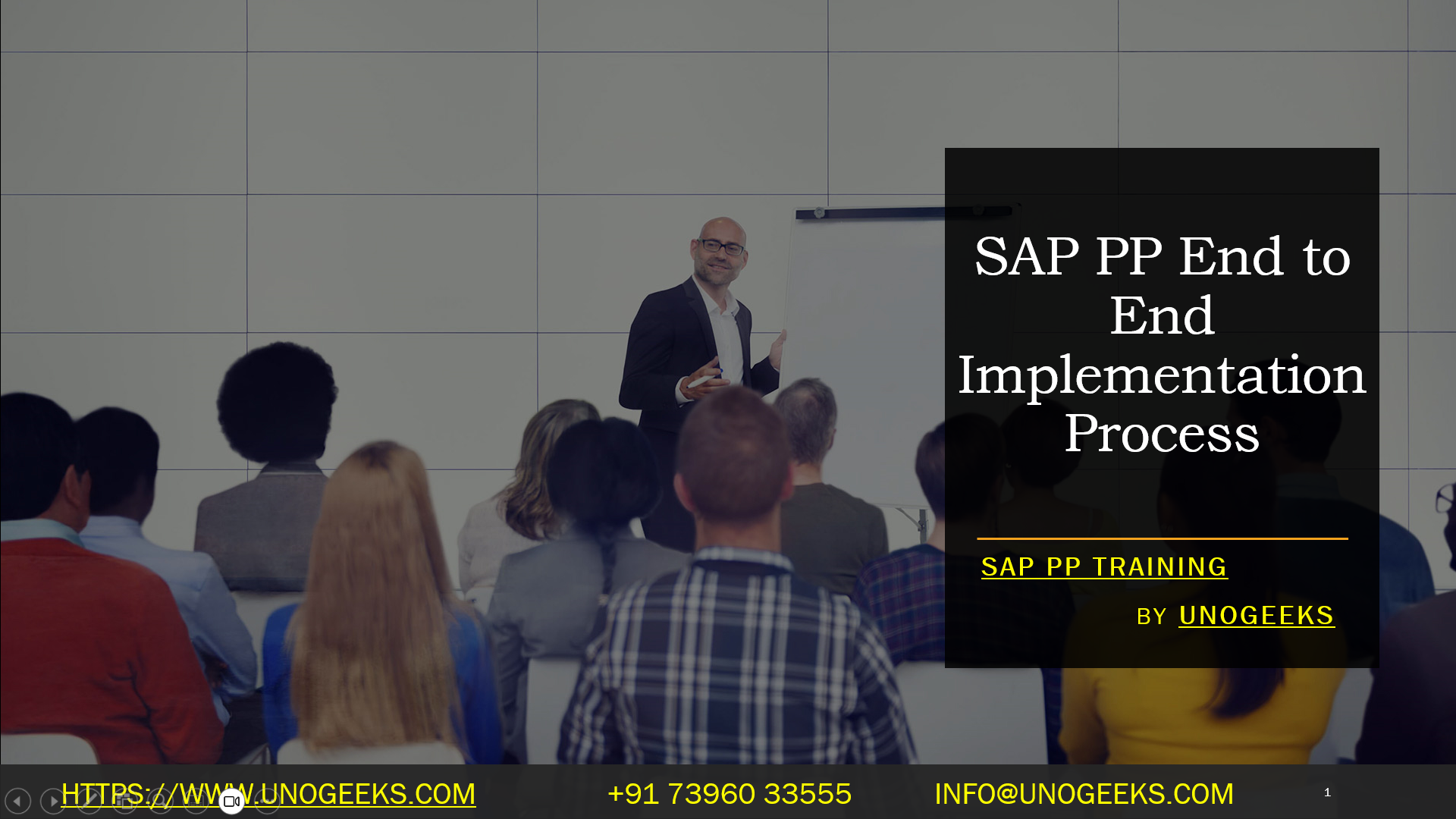SAP PP End to End Implementation Process
Streamlining Production: An End-to-End Guide to SAP PP Implementation
SAP’s Production Planning (PP) module is a powerful tool for manufacturers, but a successful implementation requires careful planning and execution. This blog post will guide you through the critical stages of an end-to-end SAP PP implementation process, equipping you to optimize production efficiency.
Preparation is Key: Building the Foundation
- Define Your Needs: Before diving in, clearly outline your production processes and identify areas for improvement. What functionalities are most crucial for your business?
- Assemble Your Team: Form a cross-functional team with production, IT, and business management representatives. Their expertise will be invaluable throughout the process.
- Choose Your Methodology: SAP offers methodologies like ASAP (Accelerated SAP) and Activate to guide your implementation. Consider your project scope and resources when selecting the most suitable approach.
Configuring the Core: Setting Up Your SAP PP Engine
- Master Data Creation: Establish a foundation of accurate master data, including materials, bills of materials (BOMs), work centers, and routing information.
- Planning and Forecasting: Configure Material Master (MM) data for MRP (Material Requirements Planning) purposes. Define planning strategies and forecasting methods to ensure you have the suitable materials at the right time.
- Production Processes: Set up production structures, such as bills of operation, that detail the steps involved in manufacturing your products. Integrate these with work centers and routing to create a clear production flow.
Testing and Training: Ensuring a Smooth Transition
- Thorough Testing: Rigorously test all functionalities to identify and rectify any issues before going live. This includes scenario testing to ensure the system handles various production situations.
- Comprehensive Training: Provide user training for all personnel interacting with the SAP PP module. Empower your team to leverage the system’s capabilities effectively.
Go-Live and Beyond: Optimizing for Success
- Data Migration: Migrate relevant production data from your existing system to SAP PP. Ensure data accuracy and consistency for seamless operations.
- Post-Go-Live Support: Provide ongoing support to address any initial challenges and guide users as they adapt to the new system.
- Continuous Improvement: Monitor your SAP PP system and identify areas for further optimization. Leverage reporting functionalities to gain valuable insights into production performance and identify areas for improvement.
Conclusion
Following a well-defined end-to-end implementation process can ensure a smooth transition to SAP PP and unlock its full potential. Remember, successful implementation is an ongoing journey. Embrace continuous improvement to maximize production efficiency and propel your business forward.
Additional Tips
- Seek Expert Guidance: Partner with an experienced SAP implementation consultant to leverage their expertise and navigate potential roadblocks.
- Change Management Strategy: Develop a comprehensive change management strategy to address user concerns and ensure user adoption of the new system.
- Stay Updated: SAP PP features, and functionalities are constantly evolving. Stay updated on the latest releases to ensure you’re reaping the most significant benefits.
Following these steps and best practices can transform your production processes with a robust and efficient SAP PP implementation.
Conclusion:
Unogeeks is the No.1 IT Training Institute for SAP PP Training. Anyone Disagree? Please drop in a comment
You can check out our other latest blogs on SAP PP here – SAP PP Blogs
You can check out our Best In Class SAP PP Details here – SAP PP Training
Follow & Connect with us:
———————————-
For Training inquiries:
Call/Whatsapp: +91 73960 33555
Mail us at: info@unogeeks.com
Our Website ➜ https://unogeeks.com
Follow us:
Instagram: https://www.instagram.com/unogeeks
Facebook:https://www.facebook.com/UnogeeksSoftwareTrainingInstitute
Twitter: https://twitter.com/unogeek
